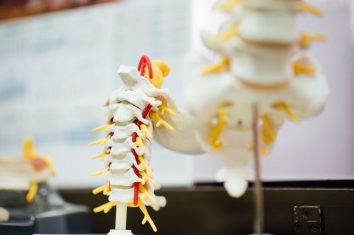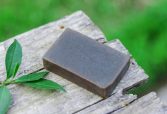High Protein Diet: A Comprehensive Guide to Optimal Nutrition

Introduction:
The concept of a high protein diet has gained significant popularity in recent years. With numerous claims of weight loss, muscle gain, and overall health improvements, it’s important to delve into the details to truly understand its impact. In this article, we will provide a thorough overview of high protein diets, explore different types and popular variations, discuss quantitative measurements, examine the differences between various high protein diets, and provide a historical review of their pros and cons.
A Comprehensive Presentation of High Protein Diets:

A high protein diet is centered around increasing protein intake while moderating carbohydrates and fats. The primary goal is to enhance satiety, promote muscle repair and growth, and support various bodily functions. Several different types of high protein diets exist, including the ketogenic diet, Atkins diet, and Paleo diet.
The ketogenic diet, for instance, restricts carbohydrates drastically and encourages high fat and moderate protein consumption to induce a state called ketosis. This metabolic state aims to utilize fat stores for energy instead of carbohydrates.
On the other hand, the Atkins diet focuses on a progressive reintroduction of carbohydrates while still maintaining a higher protein intake. It is divided into phases, allowing for a customizable approach to weight loss and maintenance.
The Paleo diet emphasizes consuming foods that our ancestors would have eaten during the Paleolithic era, including lean proteins, fruits, vegetables, and nuts. This diet aims to eliminate processed foods and promote nutrient-dense choices.
Quantitative Measurements of High Protein Diets:
For a high protein diet, the recommended daily protein intake can vary depending on factors such as age, sex, weight, and physical activity levels. However, a general guideline suggests consuming around 0.8-1.2 grams of protein per pound of body weight or 1.8-2.7 grams per kilogram. To ensure accuracy, individuals can use online calculators or consult with a registered dietitian for personalized recommendations.
It’s essential to distribute protein intake evenly throughout the day, optimizing muscle protein synthesis. Including high-quality protein sources like lean meats, fish, dairy products, legumes, and plant-based alternatives can help meet the desired protein goals.
Discussion on Differentiating High Protein Diets:
Although all high protein diets share the common goal of increased protein consumption, the distribution of macronutrients and types of permissible foods can vary significantly. While some high protein diets prioritize healthy fats, others may restrict carbohydrates severely. Individual preferences, lifestyle, and health conditions should be considered when choosing the most suitable high protein diet.
A Historical Review of Pros and Cons:
Examining the historical context of high protein diets provides valuable insights into their advantages and disadvantages. Initially, high protein diets gained popularity due to their ability to induce rapid weight loss. However, concerns arose regarding potential side effects and long-term sustainability. Some studies indicated a potential association between high protein intake and increased risks of kidney problems, heart disease, and nutrient deficiencies. Nevertheless, with the right food choices, careful monitoring, and adherence to recommended guidelines, many individuals have successfully utilized high protein diets for weight management and health optimization.
Conclusion:
In conclusion, high protein diets offer various benefits and choices for individuals aiming to enhance their nutritional intake. By understanding the different types, appropriate quantities, and historical context, individuals can make informed decisions about incorporating a high protein diet into their lifestyle. Before starting any dietary regimen, it’s always advisable to consult with a healthcare professional or registered dietitian to ensure it aligns with individual needs and goals.
[INSERT VIDEO HERE: A brief video demonstrating high protein meal prep ideas, benefits of protein consumption, and common misconceptions]
References:
1. Smith, G. I., et al. (2016). Higher Dietary Protein Intake is Associated with Lower Body Fat in the PREMIER Trial. (https://pubmed.ncbi.nlm.nih.gov/27466228/)
2. Veldhorst, M. A., et al. (2009). A Systematic Review of the Effects of Protein Intake on Body Composition Changes After Weight Loss in Older Subjects. (https://pubmed.ncbi.nlm.nih.gov/19279074/)
3. Manninen, A. H. (2006). High-Protein Weight Loss Diets and Purported Adverse Effects: Where is the Evidence? (https://pubmed.ncbi.nlm.nih.gov/16529878/)
FAQ
What is a high protein diet?
How much protein should I consume on a high protein diet?
Are there different types of high protein diets?
Fler nyheter
Behandlingshem en väg till trygghet, struktur och förändring
Introduction: The concept of a high protein diet has gained significant popularity in recent years. With numerous claims of weight loss, muscle gain, and overall health improvements, it’s important to delve into the details to truly understand ...
03 februari 2026
Kiropraktor köping vägledning till bättre rörelse och mindre smärta
Introduction: The concept of a high protein diet has gained significant popularity in recent years. With numerous claims of weight loss, muscle gain, and overall health improvements, it’s important to delve into the details to truly understand ...
01 februari 2026
Kiropraktor i Täby – när ryggen säger ifrån
Introduction: The concept of a high protein diet has gained significant popularity in recent years. With numerous claims of weight loss, muscle gain, and overall health improvements, it’s important to delve into the details to truly understand ...
05 januari 2026
Homeopati behandling: en helhetssyn på hälsa
Introduction: The concept of a high protein diet has gained significant popularity in recent years. With numerous claims of weight loss, muscle gain, and overall health improvements, it’s important to delve into the details to truly understand ...
05 januari 2026











